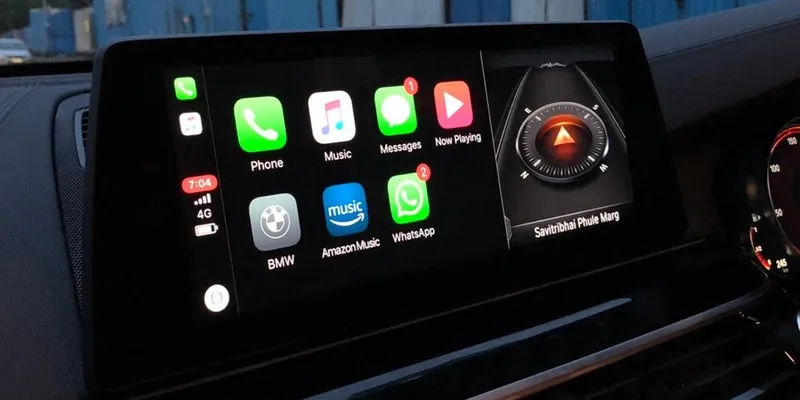Here’s what affects your driving worse than alcohol, cannabis
The study found that drivers were taking their eyes off the road for as long as 16 seconds while driving and using modern-day infotainment systems.
A study by IAM RoadSmart has found that the latest in-vehicle infotainment systems designed to improve road safety are failing, as well as impairing reaction time behind the wheel more than alcohol and cannabis use.
The study conducted by IAM RoadSmart along with Fédération Internationale de l'Automobile (FIA) and Rees Jeffreys Road Fund, found that reaction time at motorway speeds increases the average stopping distances between four and five car lengths, due to the use of infotainment systems.
Besides, stopping distances, lane control, and response to external stimuli are all negatively affected by the use of features like Android Auto and Apple CarPlay.

Moreover, drivers were found to be taking their eyes off the road for as long as 16 seconds, while driving and using modern-day infotainment systems. Also, touch control systems resulted in reduced reaction times that were even worse than texting while driving.
Speaking on the alarming findings, Neil Greig, Director of Policy and Research at IAM RoadSmart, said, “Driver distraction is estimated to be a factor in around a third of all road collisions in Europe each year. While previous research indicates that Apple CarPlay and Android Auto perform better than more traditional buttons and controls, the results from this latest study raise some serious concerns about the development and use of the latest in-vehicle infotainment systems. Anything that distracts a driver’s eyes or mind from the road is bad news for road safety.”
The study saw its participants underestimate the time spent while looking away from the road and using touchscreen-based Apple CarPlay and Android Auto by as much as five seconds.
“While we would like to see a review of these systems in the future, we’d encourage owners of vehicles fitted with these systems to use them in the safest possible way, including setting everything up before starting a journey. Individuals driving for work are just as at risk as to the general public, so we would also encourage employers to review their advice and policies in light of this research,” Neil added.
Most participants in the study reported that they use touch rather than voice control in real-world driving.
(Edited by Suman Singh)








